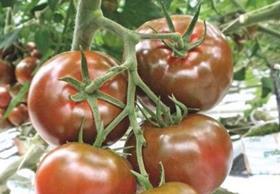
Russia and Turkey signed a memorandum on Monday agreeing to lift some of the bilateral trade restrictions imposed in 2015. However, the ban on Russian imports of Turkish tomatoes will remain in place.
Russian government sources confirmed that the deal was signed by Turkish deputy prime minister Mehmet Simsek and his Russian counterpart Arkady Dvorkovich in Istanbul.
Reports in the Russian media quote the prime minister, Dmitry Medvedev, as stating that the ban on Turkish tomato imports would remain in place but restrictions on all fruit and vegetable imports had been lifted.
Turkish prime inister Binali Yildirim said: “We have secured serious developments on all issues outside of tomatoes. We have shared our sensitivities on the tomato issue”.
Tomatoes are a contentious issue between the two countries. Before the ban, Russia imported 380,000 tonnes of Turkey’s 540,000-tonne annual tomato exports – around half of all the tomatoes consumed in Russia.
Recently, Russia has channelled significant investments into the construction of greenhouses to boost domestic supply.
Speaking after the summit in Sochi between president Putin and Turkish premier Recep Tayyip Erdogan on 3 May, Dvorkovich said restrictions on the entry of Turkish tomatoes would remain in place, possibly for another three to five years.
The easing of sanctions, which were imposed in the wake of the shooting of a Russian air force plane near the Turkish-Syrian border in 2015, marks a major step towards the improvement of relations between the two countries.
Before the trade restrictions US$875m of Turkey’s US$1.9bn of annual fruit and vegetable exports went to Russia. That figure dropped to US$331m in the aftermath of the ban.



